Khan Klub: Pakistan’s Architectural Marvel Began To Degrade
Earthquakes & shifting weather patterns severely damaged the building’s architecture and artwork. An estimated $5 to $10 million would be needed for the necessary rehabilitation and conservation work of Khan Klub
Peshawar: Khan Klub, a historically significant structure built by Mughal emperors in Peshawar City in 1800, has begun to lose its attractive old architecture and woodwork as a result of being turned into floor godowns and general stores for financial benefit.
The 200-year-old Khan Klub building, which was constructed on five marlas land and is located in Hastnagri Bazaar close to the Balahisar Fort and Chowk Yadgar, is currently in ruins and lacking the tourist and art enthusiast amenities for which it was once well-known. It needs immediate reconstruction and conservation work before it collapsed.
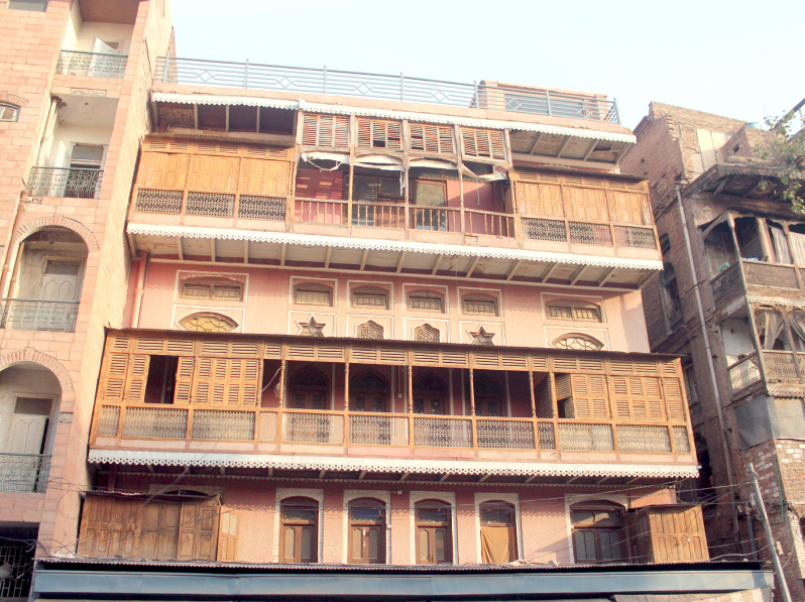
Earthquakes, torrential rains and shifting weather patterns severely damaged the building’s architecture and artwork, and at least $5 to $10 million would be needed for the necessary rehabilitation and conservation work. Before it collapsed, improvements are needed right away because of the complex artwork on the exterior and interior designs in addition to the wonderfully built balconies of the four-story building.
Visitor passing by on Ashraf Road near Rampura Gate would be devastated to find the dilapidated, basic building with dust all over the floor, food supplies, and other items of everyday use. “Khan Klub is neither a hotel nor a guesthouse nor a haveli but a home of centuries-old civilization exhibiting Mughal era architecture and traditional workmanship, and its protection was need of the hour being an identity of Peshawar,” said KP Directorate of Archaeology &Museums (DOAM) Senior Research Officer (SRO) Bakht Zada Khan.
Ancient History
Khan Klub is a boutique hotel in Peshawar, Pakistan. The hotel is housed in a restored Hindu Haveli that was built in 1793 by the Howrah family and is owned by Bashir Ahmed Awan. Zada Khan told that the Khan Klub was officially transformed into a full-fledged hotel in 1995 by a local influential Inayatullah Khan with the help of an Irish American named Martin Jay Davis, who designed and spent one year renovating the haveli with 76 refugee master artisans from Afghanistan. Khan Klub was built by Mughal emperors in Peshawar City in 1800.
All fixtures, furniture and artwork were produced by Afghan refugees and Pakistani craftsmen. The haveli was restored by Davis in order to promote cultural understanding in Peshawar of the importance of heritage preservation and the promotion of the arts.
Klub’s Unique Interior
It has eight chambers; each named after gemstones mined in Afghanistan and Pakistan and is completely unique from one another.
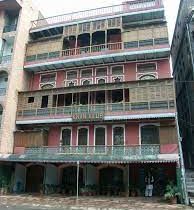
The ‘Lapic Suite’ is a huge room with a living area and bedroom that has been tastefully furnished with royal blue silk, damask, and embroidered furniture. Solid lazuli bowls and ornate tiles also add to the room’s decor. This suite has immediate access to its past library, which contained books on the history and culture of the province, especially of Peshawar and Khyber Pass.
Another room is called ‘Spinal’, with a fireplace in the winter, a private balcony, and red, beige, and black embroidered silk furnishings. Sikh-styled windows and shutters open onto the private balcony as you enter the Morganite Room, which has a 22-foot ceiling. Peach, cherry, and cognac-coloured silk embroidered furniture with antique Russian bowls and filigreed brass lanterns make this a historic place to watch.
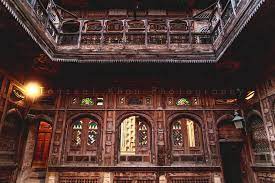
Another room called the ‘Tourmaline Suite’ has three levels of carved antique glass windows and doors with a 22-foot ceiling and multi-coloured silk and carpet furnishings. The ‘Topaz Suite’, consisting of a large sitting room and a second-level sleeping bed, a large private bath and balcony fireplace, and original oil paintings, a cedar staircase, and filigreed lanterns that complement the yellow damask furnishings, was also losing its architectural value.
A visitor to its ‘Garnet Room’ had enjoyed a panoramic view of Peshawar’s old city and the mountain ranges of Koh-e-Shalman. The room is decorated with a garnet inlaid floor and saffron-coloured silk.
‘Peridot’ is another room with a 12-foot ceiling, a balcony, and shuttered windows from where a fine view of the walled city could still be seen. The ‘Ruby Suite’ is a two-level black granitic suite with a lovely second level and private balcony, oil paintings, and red silk-covered furnishings that have inspired many.
A Hub of Tourist Destination
Due to its tranquil surroundings, architectural significance, and proximity to important historical structures like the Balahisar fort, Mohabat Khan Mosque, and Qissa Khwani bazaar, Khan Klub quickly rose to the top of the list for both domestic and foreign dignitaries staying in Peshawar, stated Bakht Zada.
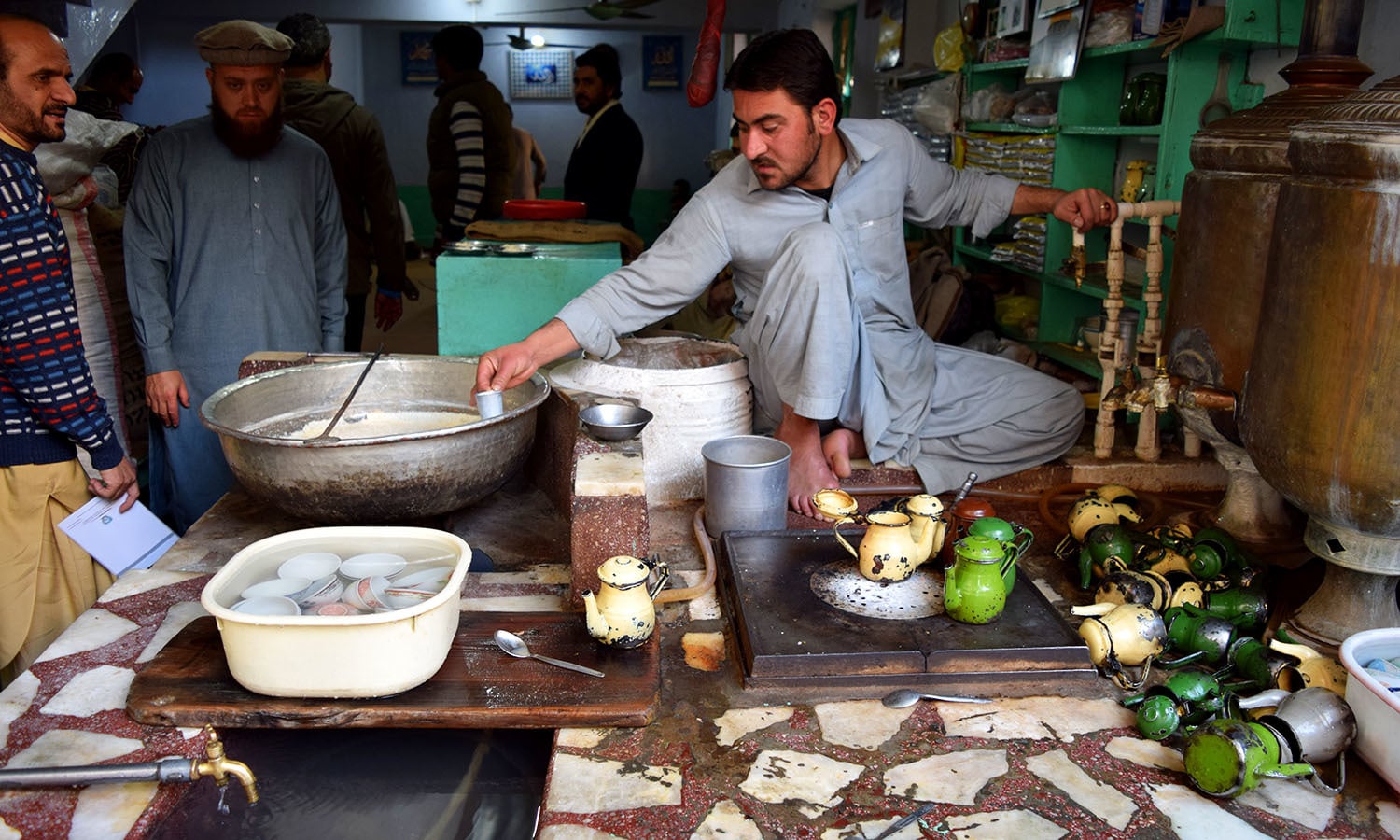
“Before 2,001, booking a room was a herculean task for foreign tourists, ambassadors and missions, who stayed here due to its pleasant atmosphere, delectable cuisines, cultural music, and closed location with other historical buildings including Qisa Khwani bazaar, Mohabat Khan Mosque, Chowk Yadgar, Ghanta Ghar, and Sethi House,” he said, adding in its main halls were flooded with tourists where they enjoyed the traditional Peshawari music including ‘Rubab with Tabla’.
The ancient architecture of Mahabat Khan mosque, which was established in the 17th century by the Mughal Governor Mohabat Khan, greatly captivated the tourists as they toured the Chowk Yadgar monument, which was created in 1892 and dedicated to General Hastings.
Peshawar Museum, the only museum dedicated to Ghandhara art and housing more than 30,000 objects and statues, attracted Ghandara art enthusiasts who took pleasure in the traditional Peshawari Qehwa at the historic Qissa Khwani bazaar in the company of the world’s storytellers.
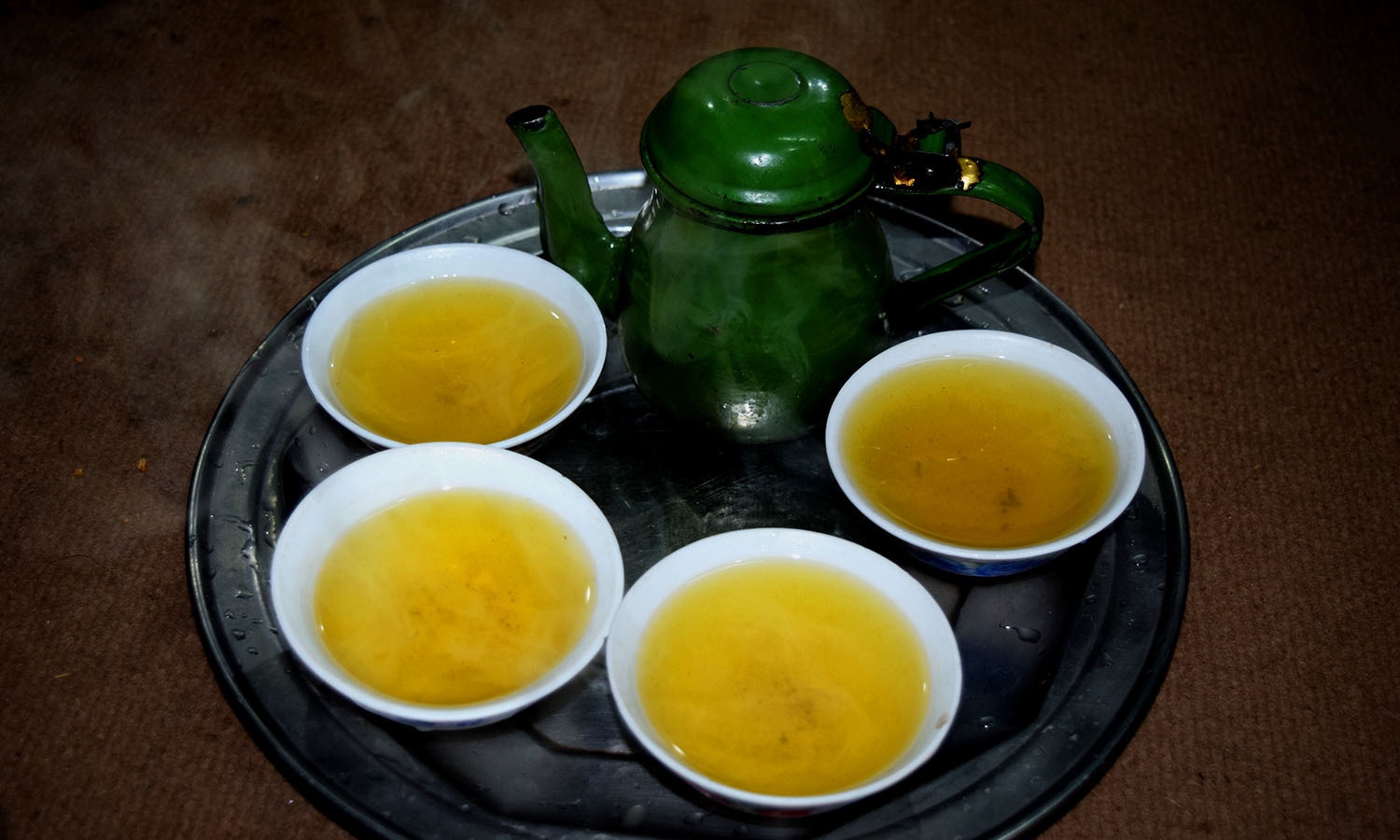
In addition to cultural events, visitors also listened to local music and sampled a variety of foods, including the delectable Peshawari Palao, Qahwah (Green Tea), lemon grass tea with a jasmine aroma, Bengal tea, Kerala coffee, and darjeeling spring bud at Qissa Khwani before returning to Khan Klub for the night, said Senior Research Officer.
Khan Klub Seeking Govt’s Attention
The owners stated that if the provincial government provided financial support for its restoration and reconstruction, they would be willing to reserve its two upper levels for tourists.
There was a restaurant from the Mughal era where visitors could sit on takiyas (pillows) and take in live performances of traditional KP music, including the popular Khattak dance and the Rubab and Tabla. This restaurant also required the attention of the relevant authorities for conservation and repair work.
SRO Khan informed that Khan Klub is one of the 1868 historic buildings, monuments, and places of worship in KP that are on the protected list and whose architecture will be maintained. The KP government had finished a cultural heritage trail project in which a 500-meter trail from the historic Ghanta Ghar to Gor Gathri had been renovated, including the establishment of a food street at Namak Mandai Peshawar and the renovation of centuries-old buildings, houses, and shops.
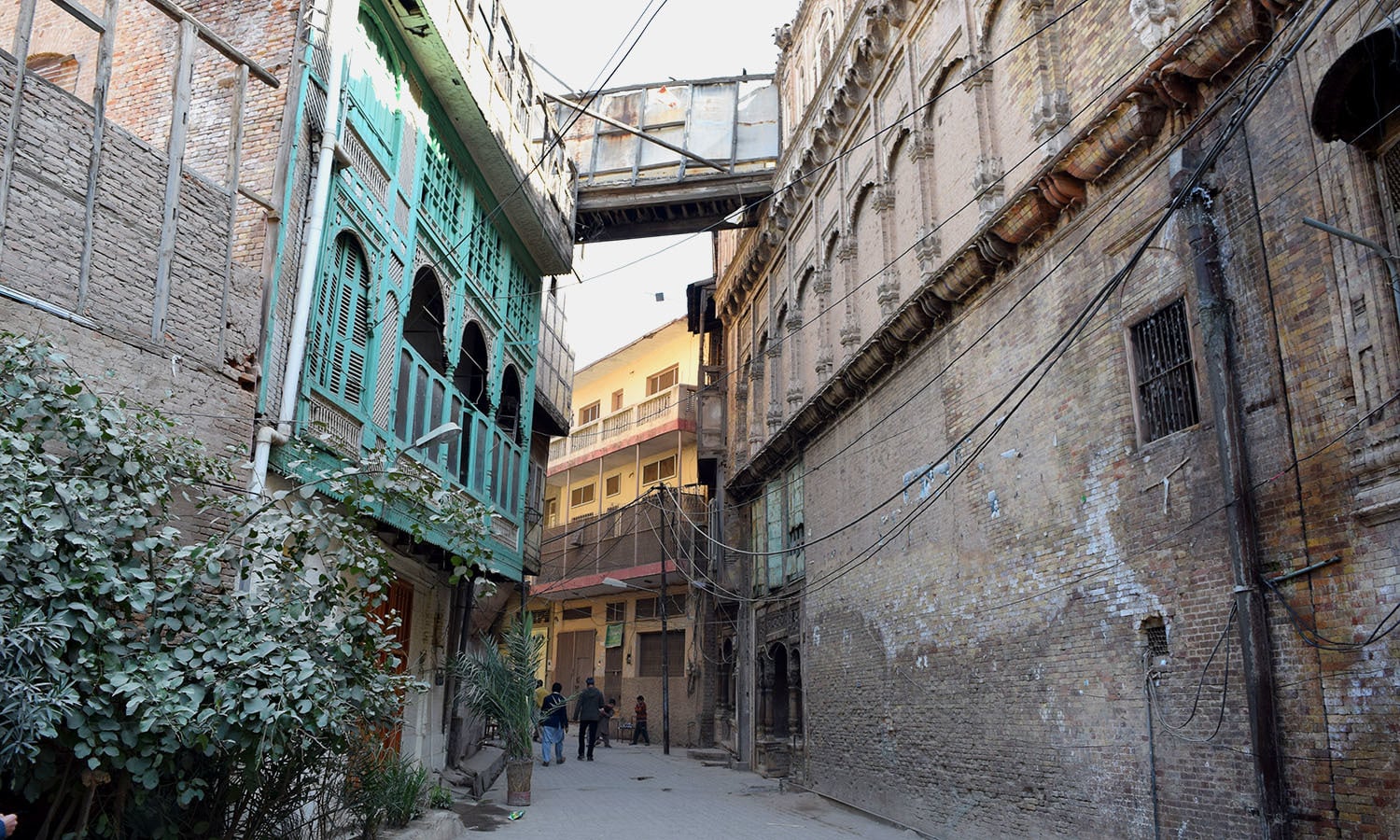
“The trail started at the historical Ghanta Ghar and passed through ancient Bazaar-e-Kalaan and primordial Mohallah Sethian, with a number of beautifully architectural houses constructed by the wealthy Sethi family way back in the 1880s,” he added.
Bakht Khan said that the government bought the Sethi house, which features distinctive woodwork, in consideration of its historical significance, and after establishing a museum there, it was made accessible to tourists. In addition to the Mughal-era inns at Gor Kathri in Peshawar, the renovation of Ali Mardan Khan Valley, erected during the British era, was finished.
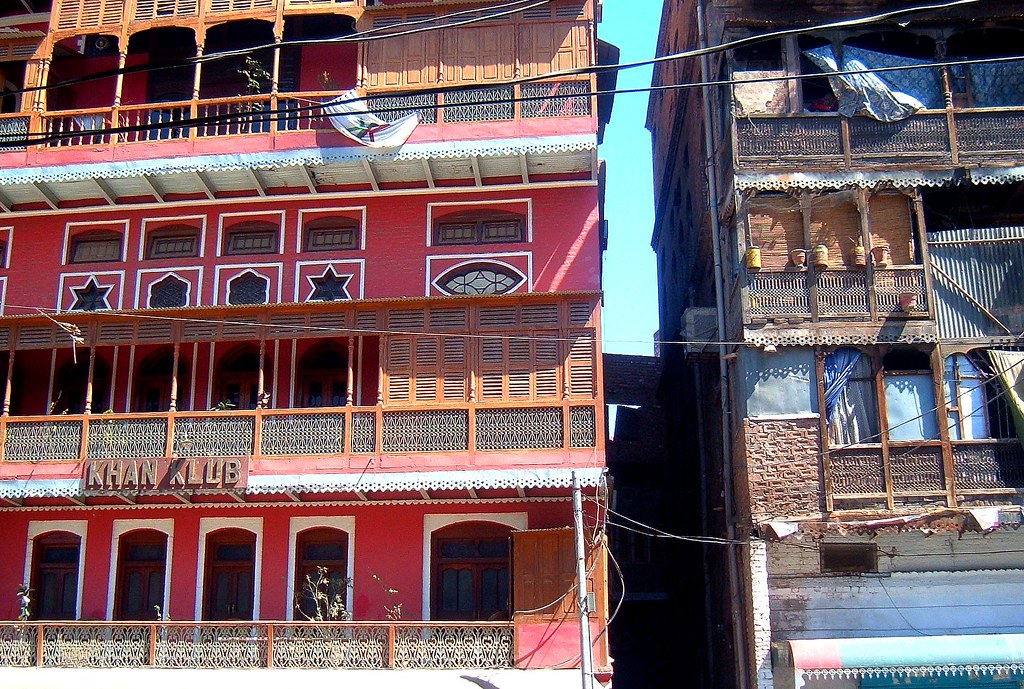 Under the heritage project, 85 ancient buildings from the Mughal, British, and Sikh periods had their exteriors refurbished with a cultural and historical flair. The experts urged Pakistan Tourist Development Corporation (PTDC) and the KP Cultural and Tourism Authority to step forward and offer financial assistance to owners of such structures in order to preserve Pakistan’s architectural marvels like Khan Klub.
Under the heritage project, 85 ancient buildings from the Mughal, British, and Sikh periods had their exteriors refurbished with a cultural and historical flair. The experts urged Pakistan Tourist Development Corporation (PTDC) and the KP Cultural and Tourism Authority to step forward and offer financial assistance to owners of such structures in order to preserve Pakistan’s architectural marvels like Khan Klub.
The feature on the heritage site has been published in APP and reproduced by the PenPK
Photo credit: Dawn file photos & google images

Comments are closed.